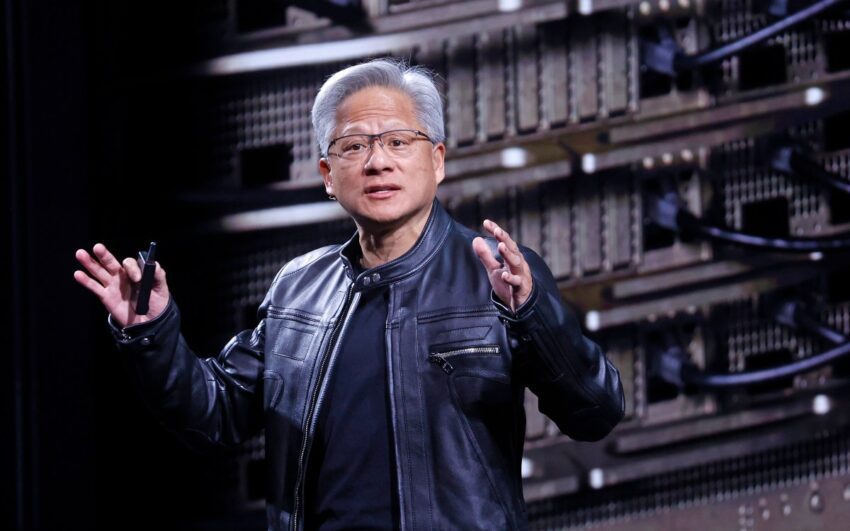
everyone s still throwing billions at ai The tech industry is witnessing a monumental shift as billions are poured into AI data centers, signaling a robust commitment to advancing artificial intelligence infrastructure.
everyone s still throwing billions at ai
Massive Financial Commitments to AI
In recent developments, the tech landscape has seen staggering financial commitments, particularly highlighted by OpenAI’s announcement of a $100 billion investment. This commitment underscores the growing recognition of AI’s potential to transform industries and drive economic growth. Such investments are not merely speculative; they are strategic moves aimed at positioning companies at the forefront of the AI revolution.
OpenAI, known for its groundbreaking work in natural language processing and machine learning, is not alone in this endeavor. Other tech giants are also making substantial investments in AI capabilities, recognizing the need for robust infrastructure to support advanced AI applications. This trend reflects a broader shift in the tech industry, where companies are increasingly prioritizing AI as a core component of their business strategies.
The AI Infrastructure Gold Rush
The term “AI infrastructure gold rush” aptly describes the current environment, where companies are racing to build the necessary frameworks to support AI technologies. This rush is characterized by significant investments in data centers, cloud computing resources, and specialized hardware designed to optimize AI workloads.
Data centers are the backbone of AI operations, providing the computational power required to train complex models and process vast amounts of data. As AI applications become more sophisticated, the demand for high-performance computing resources has surged. Companies are investing heavily in state-of-the-art facilities equipped with advanced processors, GPUs, and networking technologies to meet this demand.
Moreover, the competition for AI talent is intensifying. As organizations seek to attract top engineers, data scientists, and researchers, the tech industry is experiencing a talent shuffle. High salaries, attractive benefits, and unique work environments are becoming the norm as companies vie for the best minds in AI.
Visa Fees and Talent Acquisition
In addition to financial investments, the tech industry is also navigating regulatory challenges related to talent acquisition. A notable development this week was the introduction of a $100,000 visa fee for skilled workers in the tech sector. This fee is part of a broader effort to streamline the immigration process for highly skilled individuals, but it has raised concerns among industry leaders.
Critics argue that such high fees could deter international talent from coming to the United States, potentially stifling innovation in the AI sector. The tech industry has long relied on a diverse workforce, drawing talent from around the globe. The introduction of steep visa fees could create barriers for skilled workers, making it more challenging for companies to build the teams necessary to drive AI advancements.
Stakeholder Reactions
Reactions from stakeholders in the tech industry have been mixed. Some leaders express optimism about the potential for AI to revolutionize various sectors, while others voice concerns about the implications of increased costs associated with talent acquisition. The balance between fostering innovation and managing regulatory challenges will be crucial as the industry moves forward.
Industry experts emphasize the importance of creating an environment that encourages collaboration and knowledge sharing among AI professionals. Initiatives aimed at reducing barriers to entry for skilled workers could play a significant role in ensuring that the United States remains a leader in AI research and development.
Implications for the Future of AI
The ongoing investments in AI infrastructure and the evolving landscape of talent acquisition have far-reaching implications for the future of artificial intelligence. As companies continue to pour resources into developing advanced AI capabilities, we can expect to see significant advancements in various fields, including healthcare, finance, transportation, and more.
In healthcare, for instance, AI has the potential to revolutionize diagnostics, treatment planning, and patient care. Machine learning algorithms can analyze medical data at unprecedented speeds, enabling healthcare providers to make more informed decisions. The integration of AI into healthcare systems could lead to improved patient outcomes and reduced costs.
In finance, AI is transforming risk assessment, fraud detection, and customer service. Financial institutions are leveraging AI to analyze vast amounts of data, identify patterns, and make predictions that drive better decision-making. As AI technologies continue to evolve, we can anticipate even more innovative applications in the financial sector.
The Role of Collaboration
Collaboration among industry players, academic institutions, and government agencies will be essential to harnessing the full potential of AI. By fostering partnerships and sharing knowledge, stakeholders can accelerate the development of AI technologies and address challenges related to ethics, bias, and accountability.
Moreover, as AI becomes increasingly integrated into everyday life, the importance of ethical considerations cannot be overstated. Ensuring that AI systems are transparent, fair, and accountable will be critical in building public trust and acceptance of these technologies. Industry leaders must prioritize ethical AI development to mitigate potential risks and ensure that the benefits of AI are accessible to all.
Conclusion
The current wave of investment in AI data centers and the evolving landscape of talent acquisition highlight the tech industry’s commitment to advancing artificial intelligence. As companies navigate the complexities of building AI infrastructure and attracting skilled workers, the implications for the future of AI are profound. The potential for AI to transform industries and improve lives is immense, but it will require collaboration, ethical considerations, and a commitment to fostering innovation.
As we look ahead, it is clear that the AI revolution is just beginning. The investments being made today will shape the future of technology and society, paving the way for new opportunities and challenges in the years to come.
Source: Original report
Was this helpful?
Last Modified: September 26, 2025 at 11:44 pm
0 views















